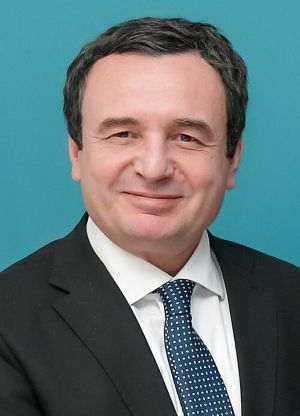The exodus of foreign corporations from Russia starting in 2022, after Moscow invaded Ukraine, has resulted in losses for foreign companies of more than $107 billion from asset writedowns and unrealized income, a Reuters analysis of press releases and documents shows. financial statements issued by companies.
The volume of losses increased by a third from the previous analysis, from August 2023, underlining the extent of the financial blow faced by the corporate world after Moscow's offensive in Ukraine, notes Agerpres.
"As the Russian invasion continues, amid the reduction of Western military aid and the variety of Western sanctions regimes, companies that still want to leave Russia will likely face difficulties and have to accept greater asset write-downs and losses," praised Ian Massey, head of the consulting company S-RM, adding: "President Vladimir Putin, who was just re-elected with a crushing score, after an electoral campaign which, the West claims, was incorrect and undemocratic, now has a mandate renewed to increase isolation from the West, including through asset confiscations and political pressure".
Russia has tightened requirements for foreign firms that want to leave the domestic market in retaliation for Moscow's offensive in Ukraine. A special commission of the Russian Government must approve all major transactions involving companies from countries labeled "unfriendly". In addition, foreign groups must sell their assets at a discount of at least 50% to the market price and pay the Russian state at least 10% of the estimated value of the asset in question. The measure was called "an exit tax" by Washington.
In addition, Russian President Vladimir Putin's personal approval is required for all transactions in strategic sectors such as energy and finance.
Since the beginning of 2024, sales of assets owned by Shell, HSBC, Polymetal International and Yandex NV have been announced, totaling almost 10 billion dollars, at discounts reaching 90%. Danone recently announced that it had received approval to sell its assets in Russia, with total losses reaching $1.3 billion.
About 1,000 companies have left the Russian market, although hundreds of firms, including Auchan and Benetton, are still operating or have suspended their businesses, according to analyzes by the Yale School of Management.
Following the sanctions imposed after the launch of the invasion of Ukraine, the states of the community bloc, together with those of the G7, blocked Russia's access to around 300 billion euros of its foreign exchange or gold reserves. Of this amount, the EU has frozen assets of the Russian central bank worth about 190 billion euros, the largest part of this amount being deposited in Belgium in the form of securities and cash amounts, and the clearing house Euroclear is in charge of the management of these assets.
Berlin nationalized the Gazprom factory in Germany, renaming it Sefe, and placed the Rosneft refinery in Schwedt under German tutelage.
According to the plan suggested by the head of European diplomacy, Josep Borrell, 90% of the income generated by these frozen Russian assets, such as interest, would be transferred to the European Peace Facility (EPF), an extra-budgetary fund made up of contributions from EU states and through which military assistance is provided to third countries, but which was mainly used to arm Ukraine. The 10% difference would be used for projects intended for the Ukrainian military industry. The head of EU diplomacy estimated the annual income from frozen Russian assets at around three billion euros.
Russia recently qualified as "theft and banditry" the proposal of the head of European diplomacy, Josep Borrell, that 90% of the revenues from Russian assets frozen in the EU should be used for the purchase of weapons intended for Ukraine, a proposal that, if implemented, also states Moscow, will lead to decades of lawsuits and the undermining of the EU's reputation as a reliable defender of property and a safe place for investment.
Some Western banks have begun lobbying against European Union proposals to redistribute billions of euros of interest on frozen Russian assets to the West, over fears they could face costly litigation, sources who spoke to Reuters told Reuters. and remain anonymous.
"There are no Western assets in Russia that can be considered safe or secure as long as the Kremlin continues to wage war," Massey said.
Moscow has already taken temporary control of assets held by several Western firms, including Fortum, Carlsberg, OMV and Uniper.
Russia's RIA news agency calculated that the West stands to lose at least $288 billion in assets and investments if Moscow retaliates. RIA data show that at the end of 2022, the direct investments of the EU, G7, Australia and Switzerland in the Russian economy totaled 288 billion dollars.
EU member states held assets of $223.3 billion, of which $98.3 billion were officially held by Cyprus, $50.1 billion by the Netherlands and $17.3 billion by Germany.
Reuters could not verify the data cited by RIA.
But Moscow's tough approach is causing damage to Russia as well. Sanctions attorney Jeremy Zucker explained that a surprisingly large number of his firm's clients in various industries have decided to withdraw from Russia entirely and will be reluctant to return, even after hostilities cease. As a result, significant technologies left the country and Russia will no longer be able to support part of the high-tech production. "With certainty, the data suggests to me that the economy will be significantly affected," said Zucker, from the American firm Dechert.
Meanwhile, a number of consumer goods companies have not completely exited Russia, arguing that ordinary people in this country rely on their products.
Among the companies still operating or doing business in Russia are Mondelez International, PepsiCo, Auchan, Nestle, Unilever, Reckitt and British American Tobacco. Others, including Intesa Sanpaolo, face bureaucratic hurdles when trying to exit the Russian market.


















































